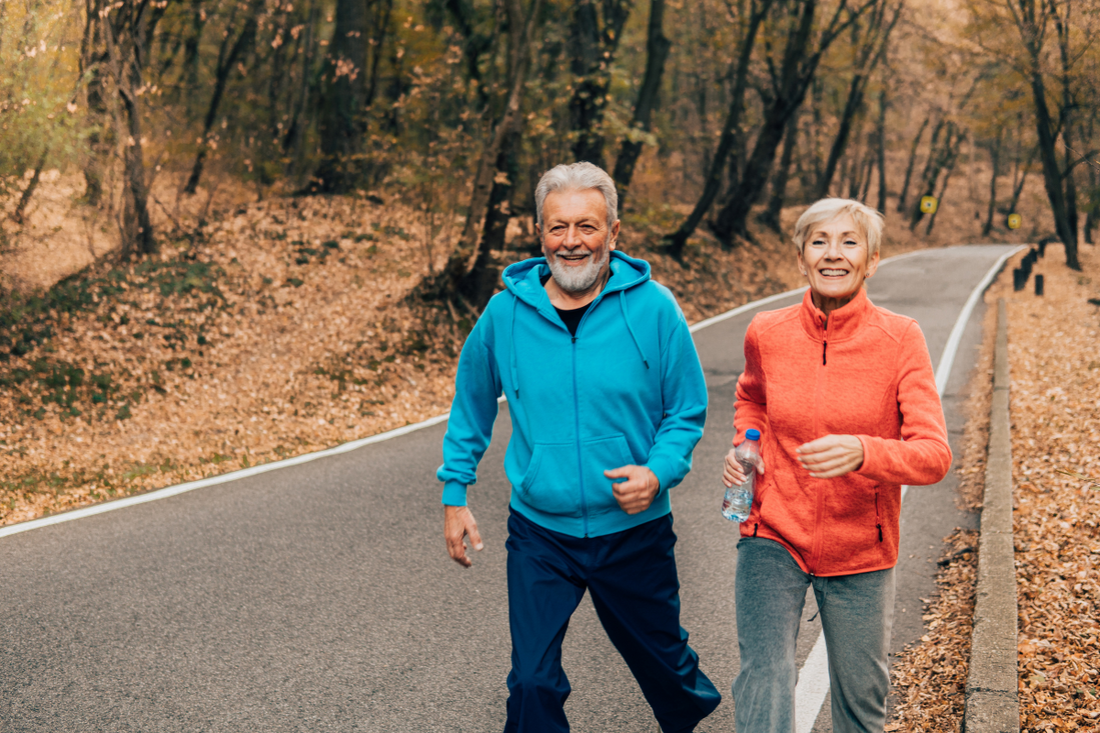
Heat Therapy for Super Adults: Unlocking Joint Pain Relief with Science and Care
Share
A Safer, More Effective Approach to Comfort and Mobility
Introduction
As we age, joint pain becomes an almost universal experience, impacting everything from daily activities to overall quality of life. Chronic discomfort, stiffness, and reduced mobility can lead to a cycle of inactivity that further exacerbates health issues. For super adults (adults 65+), finding effective pain relief is a priority, but many solutions come with limitations—medications may cause side effects, invasive treatments can be risky, and traditional heating methods might not be as effective as needed.
Heat therapy offers a scientifically supported, non-invasive solution that can relieve joint pain, improve flexibility, and promote relaxation. This article dives into the mechanisms behind heat therapy, its specific benefits for super adults, and how to use it effectively and safely. We’ll also explore why advanced far-infrared heating pads, like the XOTHRM SmartPad, provide a safer, cleaner, and more effective approach to comfort and mobility.
The Science Behind Heat Therapy
Heat therapy, or thermotherapy, works by raising the temperature of soft tissues, muscles, and joints. This increase in temperature initiates several physiological responses that can alleviate pain and improve function.
Mechanisms of Action
-
Improved Circulation
Heat dilates blood vessels (a process known as vasodilation), increasing blood flow to the affected area. This enhanced circulation delivers oxygen and essential nutrients while helping to remove metabolic waste, supporting tissue repair and reducing discomfort. -
Neurological Effects
Heat stimulates thermoreceptors in the skin, which can temporarily block pain signals transmitted to the brain through a mechanism known as the Gate Control Theory of Pain (Melzack & Wall, 1965). -
Reduction in Stiffness
Joint stiffness often results from reduced viscosity in synovial fluid and tightness in surrounding tissues. Heat therapy helps to relax muscles, improve synovial fluid flow, and enhance joint mobility. -
Decreased Muscle Tension
By relaxing muscles, heat reduces pressure on joints, alleviating secondary pain caused by compensatory muscle tension.
Why Super Adults Benefit Most from Heat Therapy
Aging joints face unique challenges: cartilage wear, reduced joint lubrication, and slower tissue repair. These issues make non-invasive interventions like heat therapy particularly appealing.
1. Drug-Free Relief
Many super adults rely on medications for chronic pain management, but prolonged use of drugs like NSAIDs can lead to side effects, including gastrointestinal bleeding, kidney problems, or dependency. Heat therapy offers localized, drug-free relief without these risks.
2. Non-Invasive and Accessible
Unlike surgical interventions or injections, heat therapy is gentle and easy to administer at home, making it ideal for super adults seeking comfort without disruption to their routines.
3. Adaptability and Control
Modern heating solutions allow for precise control over temperature and duration, empowering super adults to tailor therapy to their comfort levels.
4. Enhanced Mobility and Activity Levels
By reducing stiffness and improving flexibility, heat therapy enables super adults to maintain physical activity, critical for preserving muscle mass, cardiovascular health, and mental well-being.
Traditional Heat Therapy vs. Modern Solutions
While traditional heat therapy methods like hot water bottles or microwavable pads can provide some relief, they come with notable drawbacks:
- Uneven Heat Distribution: Inconsistent heating can result in burns or insufficient therapeutic benefits.
- Hygiene Issues: Reusable packs can harbor bacteria, posing a risk to immunocompromised super adults.
- Shallow Penetration: Most traditional methods fail to deliver heat beyond the surface, limiting their effectiveness for joint pain.
Far-infrared heating pads, such as the XOTHRM SmartPad, address these limitations and offer transformative benefits.
Why Far-Infrared Heat?
Far-infrared (FIR) heat uses light energy to penetrate up to five times deeper into tissues compared to traditional heating pads. This depth allows for more effective warming of joints, tendons, and muscles, targeting pain at its source rather than just on the surface.
Advantages of XOTHRM SmartPad
- Precision Temperature Control: Embedded sensors ensure consistent, safe heat levels tailored to therapeutic needs.
- Deeper Penetration: FIR technology reaches tissues beneath the skin for enhanced efficacy.
- Hygienic Design: Easy-to-clean surfaces prevent bacterial buildup.
Safe and Effective Use of Heat Therapy
To maximize the benefits of heat therapy, it’s essential to follow best practices, particularly for super adults who may have specific health concerns.
1. Set the Right Temperature
Studies suggest that a temperature range of 104°F to 113°F is optimal for pain relief and tissue relaxation without causing burns (Lehmann et al., 1982). The XOTHRM SmartPad automatically regulates heat and has a built in setting within this range for safety and comfort.
2. Limit Duration
Sessions of 15-20 minutes are generally effective. Prolonged exposure can lead to overheating, especially for individuals with reduced skin sensitivity or circulation issues.
3. Avoid Active Inflammation
Heat is ideal for chronic pain and stiffness but should not be applied to areas with acute inflammation, swelling, or open wounds.
4. Combine with Other Therapies
Pairing heat therapy with gentle stretching or physical therapy can enhance outcomes, promoting mobility and reducing recovery times.
5. Consult a Healthcare Provider
Seniors with conditions such as diabetes, neuropathy, or cardiovascular disease should consult their doctor before starting any heat therapy regimen.
Beyond Pain Relief: The Broader Benefits of Heat Therapy
While its primary application is pain relief, heat therapy also contributes to overall wellness.
Stress Reduction and Relaxation
Heat therapy activates parasympathetic nervous system responses, promoting relaxation and reducing stress levels. Seniors who incorporate heat therapy into their routines often report better sleep quality and lower anxiety levels.
Support for Circulatory Health
Improved blood flow benefits not only joints and muscles but also overall cardiovascular health, particularly for super adults with reduced physical activity.
Prevention of Sedentary Lifestyles
By alleviating pain and stiffness, heat therapy enables super adults to stay active, reducing the risks associated with prolonged inactivity, such as muscle atrophy, weight gain, and cardiovascular decline.
